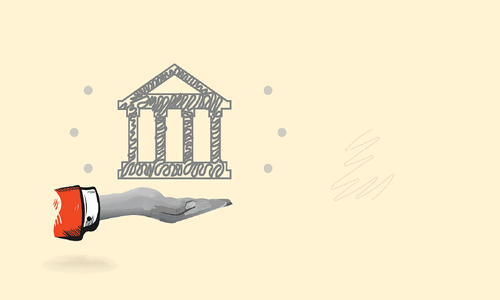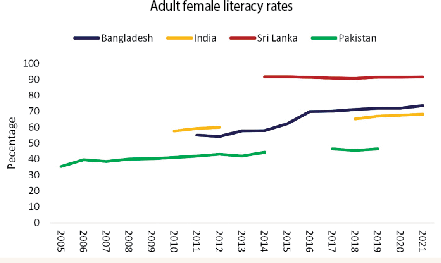Russia, the largest country in the world, has an upper-middle income mixed economy and is one of the world’s leading producers of oil and natural gas, and a top exporter of metals such as steel and primary aluminum.
Russia contains over 30 per cent of the world’s natural resources. The World Bank estimates the total value of its natural resources at $75 trillion. Income from vast natural resources, above all oil and gas, helped it overcome the economic collapse of 1998.
However, Russia remains a predominantly statist economy with a high concentration of wealth in officials’ hands.
After a two-year recession, GDP growth reversed in 2017 bolstered by higher oil prices and supportive monetary policies amid lower inflation. Government support for import substitution also increased in an effort to diversify the economy away from extractive industries.
According to the preliminary estimates, Russia’s GDP expanded by 1.5pc in 2017 compared with a 0.2pc contraction in 2016, the first-year of growth since 2014.
Russia’s economy is seen growing faster this year and the next because of improving consumer demand.
According to the World Bank in an environment of relatively high oil prices, macro-stabilisation and improved business and consumer confidence, economic growth will continue with GDP increasing by 1.7pc in 2018 and 1.8pc in 2019, because of higher exports and stronger domestic demand.
Russia’s fiscal picture has become brighter due to higher oil prices, strong demand for the country’s bonds and a change in fiscal rules, which should give the government room to adjust the budget.
In 2018, a shift to budget surplus, and a return to growth of the National Wealth Fund and the total national debt compared with GDP is very much expected.
The 2018 budget plans to increase social spending, made up by reducing spending in other fields. The goal is to reduce the deficit whilst boosting demand. The budget surplus can be one per cent of GDP in 2018.
Starting 2019, the budget is no longer expected to curb GDP growth. Structural changes and improvements in efficiency of budget expenditures will be able to trigger economic growth.
The government preference for sound, conservative financial management, reflected in a marked improvement of Russia’s external financial position in 2017 with low government debt of 12pc of GDP. The debt stocks of some Russian regions, however, have grown rapidly in recent years relative to their limited regional tax base.
The country’s poverty rate, which had fallen from 29pc in 2000 to 10.7pc in 2012, inched back up to 13.5pc in 2016. The World Bank has recently reported that less than half of the population, 46.3pc, was secure from sinking into poverty, but about 10pc lower than in 2014.
According to a study by Credit Suisse bank, the richest 10pc of Russians control 77pc of the wealth. The government vowed to halve poverty figures in six-years and boost growth to four pc, promising investment into infrastructure, health and housing.

Turkey
Turkey, an emerging market economy and one of the world’s newly industrialised countries having earned a place in the Group consisting of the twenty most important economies in the world, is classified by the World Bank as an upper-middle income country in per-capita GDP terms.
Located both in Western Asia and South-eastern Europe, it is closely related to the European economy and sensitive to interest rate hikes of the US Federal Reserve. It is also a major player in the Middle East, with one of the region’s largest economies and a population of roughly 80 million.
Its economic significance is partially attributed to the country’s growth. While countries around the world struggled to grow, let alone maintain a balanced economy, Turkey has experienced a comparatively high GDP growth annually.
The largely free-market economy is driven by its industry and, increasingly, service sectors, although its traditional agriculture sector still accounts for about 25pc of employment. The automotive, petrochemical, and electronics industries have risen in importance and surpassed the traditional textiles and clothing sectors within Turkey’s export mix.
The IMF noted that following a slowdown in growth to 3.2pc in 2016, the economy experienced a strong upturn in 2017 with growth accelerating to an estimated 6.9pc, driven by strong fiscal stimulus and an export market recovery.
According to the Turkish Statistical Institute, the GDP grew by 7.4pc in 2017, the highest rate in the past four years and well above the government’s five per cent target.
Following a rapid recent recovery, the IMF warns that a positive output gap, double digit inflation and unemployment rates well above target, and a wider current account deficit are a sign of overheating for the Turkish economy and suggests the need for further monetary and fiscal tightening.
At the current pace of economic growth, Turkey is expected to post a large current account deficit while its fiscal deficit — which is increasingly becoming the main source of growth — is set to widen further over the next two to three years.
Various forecasts suggest that Turkish economic growth in 2018 and 2019 could range between 3.8pc to 5.1pc. While the IMF warned the global positive momentum may eventually slowdown in the medium-term, it has revised 2018 and 2019 growth forecast to 4.3pc. Despite a modest slowdown in growth, Turkey will still be one of the fastest growing EM economies in 2018.
The authorities eased fiscal policy in 2017 with lower taxes on durable goods and property. As GDP ratio, the fiscal deficit widened to 1.5pc in 2017 from 1.3pc in 2016 and is targeted to rise to 1.9pc in 2018-2019.
Economists see budget deficit rising towards three per cent of GDP in 2018 and 2019 as the authorities are expected to boost spending and maintain growth-friendly tax policy.
Published in Dawn, The Business and Finance Weekly, April 9th, 2018


































